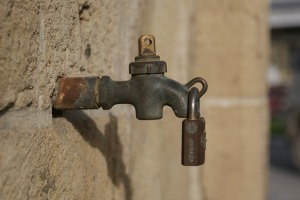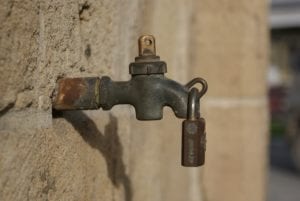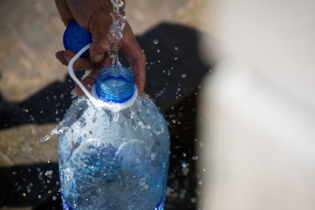 The Department of Water and Sanitation is moving ahead with the rationed restriction of bulk water supply to the municipalities that have failed to engage with the department or make payment of their outstanding debts by the deadline of 8 December.
The Department of Water and Sanitation is moving ahead with the rationed restriction of bulk water supply to the municipalities that have failed to engage with the department or make payment of their outstanding debts by the deadline of 8 December.
Speaking at a water debt briefing in Tshwane , Minister of Water and Sanitation Nomvula Mokonyane, emphasised that the department would not cut water supply but may throttle the pressure to ensure that citizens are provided with the minimal allocation of water, as dictated by the Constitution.
The South African standard relating to a ‘basic’ water supply is defined as 25 litres of water per person, per day, and this amounts to six kilolitres of water per household, per month for a household of eight people.
Maintaining a basic level of access to water
“This restricted volume will also be augmented by 40% to cater for supply to informal settlements as well as water losses within the reticulation system. This is what the Constitution requires us to provide, as a basic level of access to water for all households in South Africa.
“The water restrictions proposed would be designed to ensure that households and citizens have access to their constitutionally guaranteed basic level of supply, while we force municipalities to meet their financial obligations,” the Minister explained.
However, she warned that being indigent does not mean using water irresponsibly.
Systematic challenges
An analysis by the department of the top 30 defaulting municipalities has highlighted several systematic challenges that require the interventions of the Cooperative Governance and Traditional Affairs (Cogta) Ministry and the provinces in support of municipalities.
“This analysis indicates that the majority of these municipalities fall between high to extreme vulnerability in areas such as revenue collection, wastewater management and compliance, financial and infrastructure asset management as well as operations and maintenance.
“Twenty-six percent of the municipalities show non-revenue water figures of above 50 percent. This means that these municipalities are losing more than half of the water supplied through their systems. A further 26 percent have been unable to track and provide data on water losses.
“This emphasises the important observations we have made of a need to drastically improve the capacity of municipalities to plan, budget, operate and maintain water services infrastructure, including adequate systems of revenue collection and an updated indigent register,” the Minister said.
She further assured that the department will not punish municipalities that are cooperating and that the end user will not be “punished”.
 The Department of Water and Sanitation is moving ahead with the rationed restriction of bulk water supply to the municipalities that have failed to engage with the department or make payment of their outstanding debts by the deadline of 8 December.
The Department of Water and Sanitation is moving ahead with the rationed restriction of bulk water supply to the municipalities that have failed to engage with the department or make payment of their outstanding debts by the deadline of 8 December.





